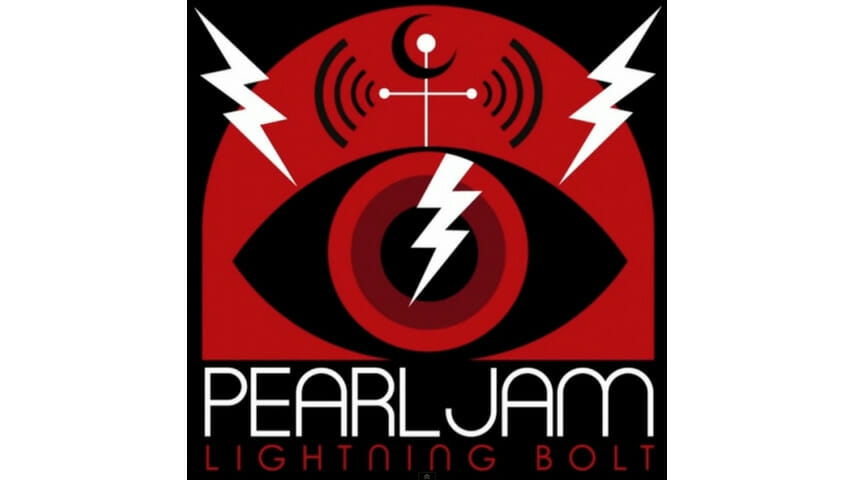Pearl Jam: Lightning Bolt

When Pearl Jam hit cruise control for their career is debatable, and it should be said that it beats the alternative that most bands eventually succumb to—namely, irrelevance. Pearl Jam have successfully built a core audience that will appreciate every album they put out, and the band manages to land the occasional wide hit to keep casual fans and detractors from forgetting about their existence, or even viewing them as a touring act whose creative period has long passed.
1998’s Yield is a good marker in time to note the shift in Pearl Jam. Yield marks the beginning of the current lineup, with Matt Cameron subbing in for Jack Irons at drums after recording, and it marked the end of highly Eddie Vedder-centric songwriting and a return to their dynamic held on the first two albums. I mean, just look at the album title; eventually Pearl Jam would yield to most of the platitudes they raised early in their career. This made for a happier band and is the reason there still is a Pearl Jam today, but the problem is that the band’s most provocative, dynamic music has largely been written by Vedder alone, and their best aging albums are the ones where Vedder had most of the songwriting duties, Vitalogy and No Code. “Porch,” “Rearview Mirror,” “Elderly Woman Behind a Counter in a Small Town,” “Wishlist,” “I Am Mine,” “World Wide Suicide,” “Just Breathe,” “Better Man,” “Corduroy,” “Off He Goes,” and on and on; the Vedder solo compositions list reads like an alternate history of Pearl Jam, often the most directly affecting songs, usually the most tastefully restrained (as Vedder isn’t the musician his bandmates are), and without a doubt the most reliable.
-

-

-

-

-

-

-

-

-

-

-

-

-

-

-

-

-

-

-

-

-

-

-

-

-

-

-

-

-

-

-

-

-

-

-

-

-

-

-

-








































